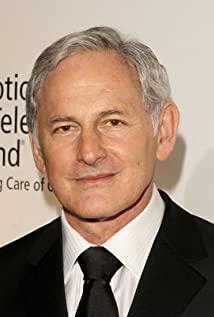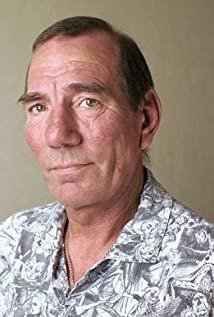In many excellent literary and artistic works, the standards of good and bad are vague. Sometimes, we even hope that the bad guy will have a good ending, and it would be better if the character who played the good guy died.
When a person thinks like this, it means that he has begun to truly face human nature, because good and bad are the judgment of the result, which is not necessarily related to the good and evil in human nature.
Ben Affleck plays mostly positive roles. This time he is a craftsman who uses bank robbery as an "ancestral skill", so he cannot be classified as a good person, but his actions show the brilliance of goodness ——He does not allow killing, harming hostages, and revenge (silence), so that he is hopelessly in love with the female hostage played by Rebecca Hall.
Jeremy Renner plays a man with obvious violent neurotic tendencies, who lacks pity for the hostages, the police and everyone who opposes him, but when he sips Coke with difficulty and fights his own end with death without hesitation. At that time, I think most people who watched the movie forgave him. Obviously, in this character's philosophy of life, robbing a bank is just a job, just as much a job as a restaurant, gas station, supermarket, or bond company. But he will never go to jail again for this, because he is a "50-pound mule" and he would rather die.
Not all the dignity of work is at stake, but robbing a bank does. What we are moved is not the pity of the last cola, but the tragic and solemn defense of dignity.
Rebecca Hall is irredeemably sexy. This sexy is not in exposure, not in sexual suggestion, but in the kindness and tenderness that needs to be taken care of in her eyes and smile. It should be said that as a self-directed and self-acted work, Ben Affleck has a vicious eye in casting, and the two are perfectly matched in temperament. Most of the male protagonist's kindness and inner conflict are revealed through the interaction with the female protagonist. In the end, the heroine did not live up to everyone's expectations. A euphemistic hint and an open ending left more reverie.
There is also a detail in the play that moved me very much, that is, the male protagonist went to prison to visit his father. A few minutes of dialogue showed the old criminal's stubbornness and stubbornness, and the line echoed at the end: "But I know I'll see you again, in life and after death."
Soon, the father died in prison, the cause of his death was to fight other gangsters in the prison. The male protagonist has always been brooding about his father's failure to find his missing mother, but in fact, he was already dead when his mother disappeared. The father would rather bear the infamy of being ruthless and do not want to obliterate the male protagonist's last remaining thoughts about his mother. miss.
At the end of the film, the male protagonist is standing on the small pier on the river bank, facing the endless plain. He may still be waiting for the female protagonist, just like when he was a child, fantasizing that one day his mother would suddenly reappear in front of him. But I think it's probably difficult for him to wait. The heroine is a kind and fragile character, and maybe it's not necessarily good to wait. But in any case, for the good in my heart, all the waiting is worth it, because "I know I will see you again, whether it is in life or after death."
View more about The Town reviews











